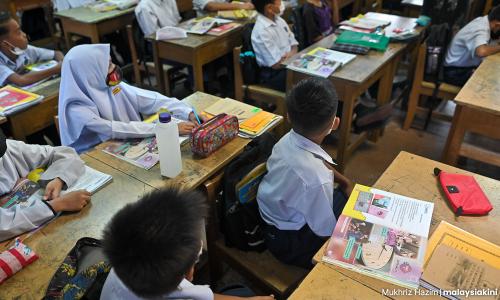LETTER | Govt must carry out substantial education reforms
LETTER | The government needs to carry out more substantial education reforms, providing equal opportunity and accessibility to international standards of education, and promoting social integration among students from various streams by way of convergence through diversification of our education system.
The number of parents, including the T20 high-income group Malay parents, sending their children to international schools and vernacular schools has increased over the years.
It indicates that there is a high demand for alternative education with a higher competitive edge which the present national school system cannot provide.
Notably, this phenomenon would further severe the inequality in obtaining more competitive education in terms of science, technology, engineering, and mathematics (STEM), languages and cultural adaptability because most M40 and B40, including rural students, do not have the same accessibility to high-quality education.
It is commendable that the Education Ministry has done quite a great deal in a short period of time to upgrade teacher training programmes in all streams and implement fairer admission of students to the matriculation programmes.
The pilot school project in Johor with an emphasis on STEM and English is a first step towards a larger scale of education reforms. The Johor pilot school project is an important experiment leading to more comprehensive futuristic education reforms.
Nonetheless, in the past, many education policies have been implemented hastily in an impromptu manner, and there is a need for more systematic study on the education reforms that benefit all sectors of Malaysian society regardless of race, region and social status.
The contrasting difference between vernacular schools and private international schools is that the former provides free education and the latter provides a privileged, private-funded education even though both have the similarity in preparing their students for more competitiveness and readiness in the real world and for better employment opportunities.
A rigid one-stream national school system has further handicapped the underprivileged students' competitiveness in their varying future career prospects, especially the rural, lower M40 and B40 students who are most affected.
Take the bold initiative to recognise the Unified Examinations for Independent Chinese Secondary Schools (UEC) so that students from all streams can integrate more effectively by convergence at different stages, including from secondary school, and tertiary level to workplace.
The Education Ministry and the Parliament Select Committee concerned should set up a special commission to study all possible education reforms to ensure that the underprivileged M40 and B40 lower-income groups and rural students are accessible to the same benefits of an internationally competitive education system similar to the students from the T20 group.
DR BOO CHENG HAU is a Johor DAP state committee member.
The views expressed here are those of the author/contributor and do not necessarily represent the views of Malaysiakini.
RM12.50 / month
- Unlimited access to award-winning journalism
- Comment and share your opinions on all our articles
- Gift interesting stories to your friends
- Tax deductable
